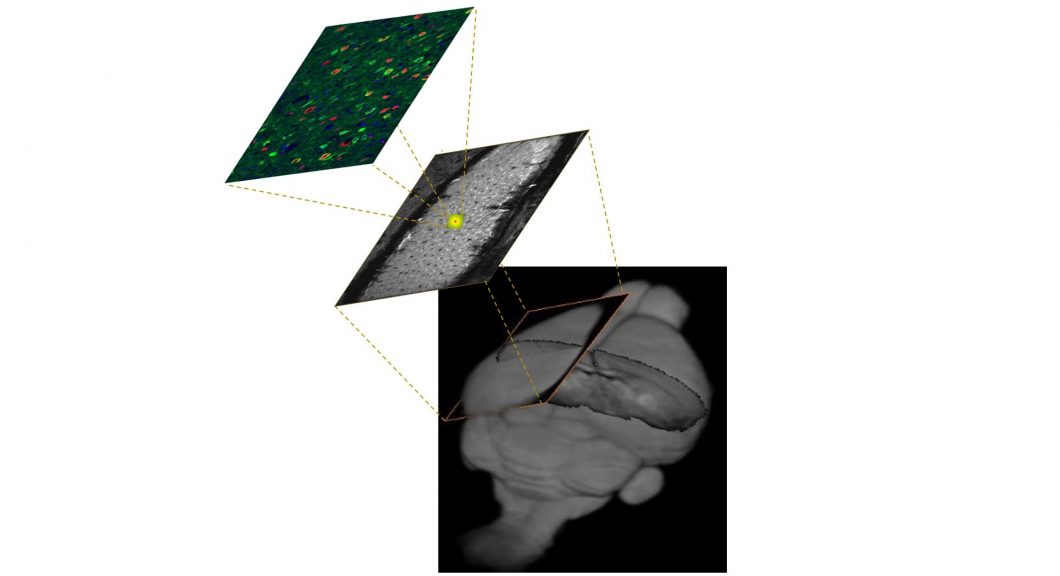The first research direction of the TNNC laboratory led by Dr. Xin Yu is to study the neuro-glial-vascular signaling in different brain regions contributing to brain state fluctuation in both normal and pathological brains with neuronal or vascular impairment to dementia (e.g. AD, hydrocephalus, or brainstem ischemia). The lab has developed high-resolution fMRI methodology (e.g. line-scanning and single-vessel fMRI) in combination with simultaneous fiber photometry and electrophysiological recordings. We aim to better understand the contribution of astrocytic function and vasodynamics through the “glymphatic” system in animal brains with the multi-modal fMRI platform.
The other direction is to identify the core switch underlying the brain arousal and coma state changes by combining genetic tools with optical imaging and high field fMRI. The goal is to identify candidate molecules from critical brain nuclei, which can contribute to switching brain states. We expect to translate the knowledge acquired from studies of animal models to novel therapeutic treatment of coma patients, and bridge brain functional mapping from the cellular to the circuit, and to the systems level.
Open Position
For inquiries of postdoctoral, Ph.D., technician, and internship positions, please send your CV to xyu9@mgh.harvard.edu or contact us with twitter: https://twitter.com/yuxinnyu

 When Photons Meet Protons
When Photons Meet Protons